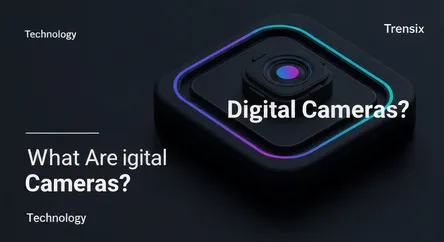Technology
What Are Digital Cameras?

Explore the world of digital cameras, from how they work to why they remain popular for capturing high-quality images in the age of smartphones.
What is it?
A digital camera is a device that captures photographs and stores them electronically instead of on photographic film. At its core is an electronic image sensor, typically a CCD or CMOS chip, which converts light into digital data. This data is then processed and saved as an image file on a memory card. Unlike film cameras, digital models allow users to view images instantly on an LCD screen, delete unwanted shots, and store thousands of photos on a single card. Major types include compact point-and-shoots, DSLRs (Digital Single-Lens Reflex), and the increasingly popular mirrorless cameras, each offering different levels of control and image quality.
Why is it trending?
While smartphones have made casual photography ubiquitous, dedicated digital cameras are trending among hobbyists and professionals seeking superior quality. The primary drivers are larger sensors that capture more light for clearer, more detailed images, especially in low-light conditions. The ability to use interchangeable lenses provides creative flexibility that phone cameras cannot match, allowing for everything from wide-angle landscapes to telephoto wildlife shots. The resurgence of interest in photography as a craft and the demand for high-quality content for social media and vlogging have further fueled their popularity, particularly for mirrorless and advanced compact models.
How does it affect people?
Digital cameras have fundamentally changed how we document our lives and consume visual media. They democratized photography, making it more accessible and affordable by eliminating the cost and delay of film development. This instant feedback loop helps people learn and improve their skills faster. For professionals, the digital workflow has revolutionized industries like photojournalism, fashion, and advertising, enabling rapid editing and distribution. On a personal level, it allows for the easy creation and sharing of memories, fostering a more visual and connected global culture through platforms like Instagram and Flickr.